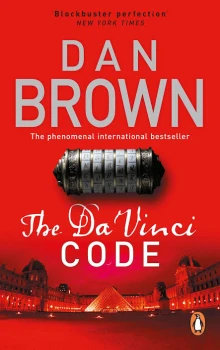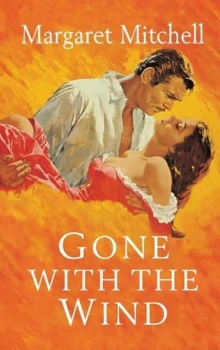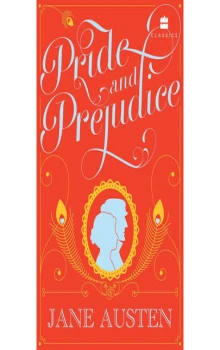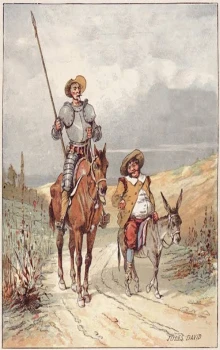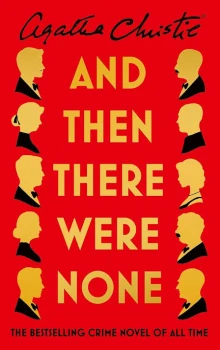The Mona Lisa.
For an instant, standing in the exit stairwell, Sophie forgot all about trying to leave the
Louvre.
Her shock over the anagram was matched only by her embarrassment at not having
deciphered the message herself. Sophie's expertise in complex cryptanalysis had caused
her to overlook simplistic word games, and yet she knew she should have seen it. After
all, she was no stranger to anagrams—especially in English.
When she was young, often her grandfather would use anagram games to hone her
English spelling. Once he had written the English word “planets” and told Sophie that an
astonishing sixty-two other English words of varying lengths could be formed using
those same letters. Sophie had spent three days with an English dictionary until she found
them all.
“I can't imagine,” Langdon said, staring at the printout, “how your grandfather created
such an intricate anagram in the minutes before he died.”
Sophie knew the explanation, and the realization made her feel even worse. I should
have seen this! She now recalled that her grandfather—a wordplay aficionado and art
lover—had entertained himself as a young man by creating anagrams of famous works
of art. In fact, one of his anagrams had gotten him in trouble once when Sophie was a
little girl. While being interviewed by an American art magazine, Saunière had expressed
his distaste for the modernist Cubist movement by noting that Picasso's masterpiece Les
Demoiselles d'Avignon was a perfect anagram of vile meaningless doodles. Picasso fans
were not amused.
“My grandfather probably created this Mona Lisa anagram long ago,” Sophie said,
glancing up at Langdon. And tonight he was forced to use it as a makeshift code. Her
grandfather's voice had called out from beyond with chilling precision.
Leonardo da Vinci!
The Mona Lisa!
Why his final words to her referenced the famous painting, Sophie had no idea, but
she could think of only one possibility. A disturbing one.
Those were not his final words. . . .
Was she supposed to visit the Mona Lisa? Had her grandfather left her a message
there? The idea seemed perfectly plausible. After all, the famous painting hung in the
Salle des Etats—a private viewing chamber accessible only from the Grand Gallery. In
fact, Sophie now realized, the doors that opened into the chamber were situated only
twenty meters from where her grandfather had been found dead.
He easily could have visited the Mona Lisa before he died.
Sophie gazed back up the emergency stairwell and felt torn. She knew she should
usher Langdon from the museum immediately, and yet instinct urged her to the contrary.
As Sophie recalled her first childhood visit to the Denon Wing, she realized that if her
grandfather had a secret to tell her, few places on earth made a more apt rendezvous than
Da Vinci's Mona Lisa.
“She's just a little bit farther,” her grandfather had whispered, clutching Sophie's tiny
hand as he led her through the deserted museum after hours.
Sophie was six years old. She felt small and insignificant as she gazed up at the
enormous ceilings and down at the dizzying floor. The empty museum frightened her,
although she was not about to let her grandfather know that. She set her jaw firmly and
let go of his hand.
“Up ahead is the Salle des Etats,” her grandfather said as they approached the Louvre's
most famous room. Despite her grandfather's obvious excitement, Sophie wanted to go
home. She had seen pictures of the Mona Lisa in books and didn't like it at all. She
couldn't understand why everyone made such a fuss.
“C'est ennuyeux,” Sophie grumbled.
“Boring,” he corrected. “French at school. English at home.”
“Le Louvre, c'est pas chez moi!” she challenged.
He gave her a tired laugh. “Right you are. Then let's speak English just for fun.”
Sophie pouted and kept walking. As they entered the Salle des Etats, her eyes scanned
the narrow room and settled on the obvious spot of honor—the center of the right-hand
wall, where a lone portrait hung behind a protective Plexiglas wall. Her grandfather
paused in the doorway and motioned toward the painting.
“Go ahead, Sophie. Not many people get a chance to visit her alone.”
Swallowing her apprehension, Sophie moved slowly across the room. After everything
she'd heard about the Mona Lisa, she felt as if she were approaching royalty. Arriving in
front of the protective Plexiglas, Sophie held her breath and looked up, taking it in all at
once.
Sophie was not sure what she had expected to feel, but it most certainly was not this.
No jolt of amazement. No instant of wonder. The famous face looked as it did in books.
She stood in silence for what felt like forever, waiting for something to happen.
“So what do you think?” her grandfather whispered, arriving behind her. “Beautiful,
yes?”
“She's too little.”
Saunière smiled. “You're little and you're beautiful.”
I am not beautiful, she thought. Sophie hated her red hair and freckles, and she was
bigger than all the boys in her class. She looked back at the Mona Lisa and shook her
head. “She's even worse than in the books. Her face is . . . brumeux.”
“Foggy,” her grandfather tutored.
“Foggy,” Sophie repeated, knowing the conversation would not continue until she
repeated her new vocabulary word.
“That's called the sfumato style of painting,” he told her, “and it's very hard to do.
Leonardo da Vinci was better at it than anyone.”
Sophie still didn't like the painting. “She looks like she knows something . . . like when
kids at school have a secret.”
Her grandfather laughed. “That's part of why she is so famous. People like to guess
why she is smiling.”
“Do you know why she's smiling?”
“Maybe.” Her grandfather winked. “Someday I'll tell you all about it.”
Sophie stamped her foot. “I told you I don't like secrets!”
“Princess,” he smiled. “Life is filled with secrets. You can't learn them all at once.”
“I'm going back up,” Sophie declared, her voice hollow in the stairwell.
“To the Mona Lisa?” Langdon recoiled. “Now?”
Sophie considered the risk. “I'm not a murder suspect. I'll take my chances. I need to
understand what my grandfather was trying to tell me.”
“What about the embassy?”
Sophie felt guilty turning Langdon into a fugitive only to abandon him, but she saw no
other option. She pointed down the stairs to a metal door. “Go through that door, and
follow the illuminated exit signs. My grandfather used to bring me down here. The signs
will lead you to a security turnstile. It's monodirectional and opens out.” She handed
Langdon her car keys. “Mine is the red SmartCar in the employee lot. Directly outside
this bulkhead. Do you know how to get to the embassy?”
Langdon nodded, eyeing the keys in his hand.
“Listen,” Sophie said, her voice softening. “I think my grandfather may have left me a
message at the Mona Lisa—some kind of clue as to who killed him. Or why I'm in
danger.” Or what happened to my family. “I have to go see.”
“But if he wanted to tell you why you were in danger, why wouldn't he simply write it
on the floor where he died? Why this complicated word game?”
“Whatever my grandfather was trying to tell me, I don't think he wanted anyone else to
hear it. Not even the police.” Clearly, her grandfather had done everything in his power
to send a confidential transmission directly to her. He had written it in code, included her
secret initials, and told her to find Robert Langdon—a wise command, considering the
American symbologist had deciphered his code. “As strange as it may sound,” Sophie
said, “I think he wants me to get to the Mona Lisa before anyone else does.”
“I'll come.”
“No! We don't know how long the Grand Gallery will stay empty. You have to go.”
Langdon seemed hesitant, as if his own academic curiosity were threatening to
override sound judgment and drag him back into Fache's hands.
“Go. Now.” Sophie gave him a grateful smile. “I'll see you at the embassy, Mr.
Langdon.”
Langdon looked displeased. “I'll meet you there on one condition,” he replied, his
voice stern.
She paused, startled. “What's that?”
“That you stop calling me Mr. Langdon.”
Sophie detected the faint hint of a lopsided grin growing across Langdon's face, and
she felt herself smile back. “Good luck, Robert.”
When Langdon reached the landing at the bottom of the stairs, the unmistakable smell of
linseed oil and plaster dust assaulted his nostrils. Ahead, an illuminated SORTIE/EXIT
displayed an arrow pointing down a long corridor.
Langdon stepped into the hallway.
To the right gaped a murky restoration studio out of which peered an army of statues
in various states of repair. To the left, Langdon saw a suite of studios that resembled
Harvard art classrooms—rows of easels, paintings, palettes, framing tools—an art
assembly line.
As he moved down the hallway, Langdon wondered if at any moment he might awake
with a start in his bed in Cambridge. The entire evening had felt like a bizarre dream. I'm
about to dash out of the Louvre . . . a fugitive.
Saunière's clever anagrammatic message was still on his mind, and Langdon wondered
what Sophie would find at the Mona Lisa . . . if anything. She had seemed certain her
grandfather meant for her to visit the famous painting one more time. As plausible an
interpretation as this seemed, Langdon felt haunted now by a troubling paradox.
P.S. Find Robert Langdon.
Saunière had written Langdon's name on the floor, commanding Sophie to find him.
But why? Merely so Langdon could help her break an anagram?
It seemed quite unlikely.
After all, Saunière had no reason to think Langdon was especially skilled at anagrams.
We've never even met. More important, Sophie had stated flat out that she should have
broken the anagram on her own. It had been Sophie who spotted the Fibonacci sequence,
and, no doubt, Sophie who, if given a little more time, would have deciphered the
message with no help from Langdon.
Sophie was supposed to break that anagram on her own. Langdon was suddenly
feeling more certain about this, and yet the conclusion left an obvious gaping lapse in the
logic of Saunière's actions.
Why me? Langdon wondered, heading down the hall. Why was Saunière's dying wish
that his estranged granddaughter find me? What is it that Saunière thinks I know?
With an unexpected jolt, Langdon stopped short. Eyes wide, he dug in his pocket and
yanked out the computer printout. He stared at the last line of Saunière's message.
P.S. Find Robert Langdon.
He fixated on two letters.
P.S.
In that instant, Langdon felt Saunière's puzzling mix of symbolism fall into stark focus.
Like a peal of thunder, a career's worth of symbology and history came crashing down
around him. Everything Jacques Saunière had done tonight suddenly made perfect sense.
Langdon's thoughts raced as he tried to assemble the implications of what this all
meant. Wheeling, he stared back in the direction from which he had come.
Is there time?
He knew it didn't matter.
Without hesitation, Langdon broke into a sprint back toward the stairs.
